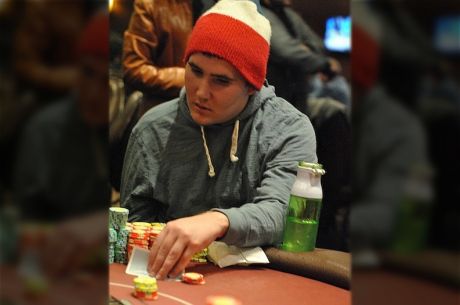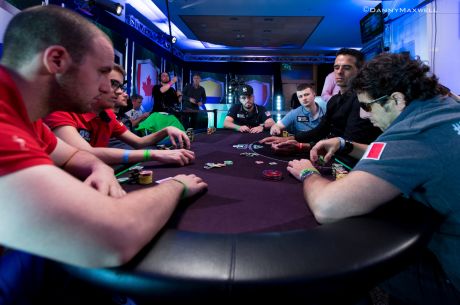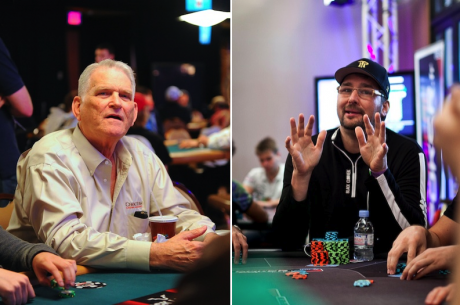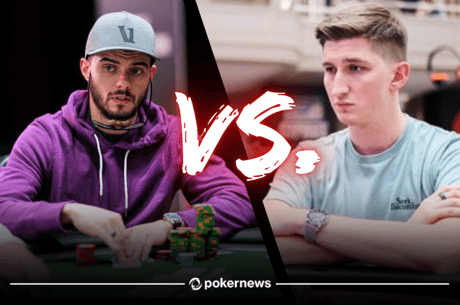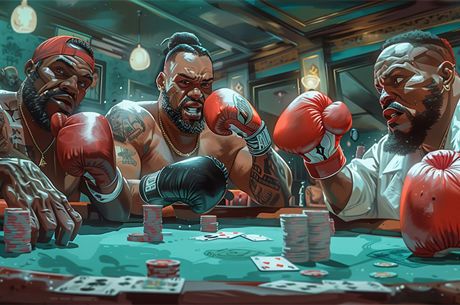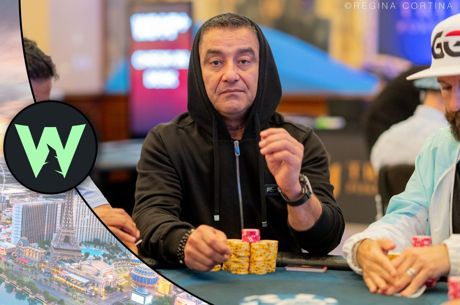The Difficulty of Trying to Get Weaker Players to Fold Overpairs
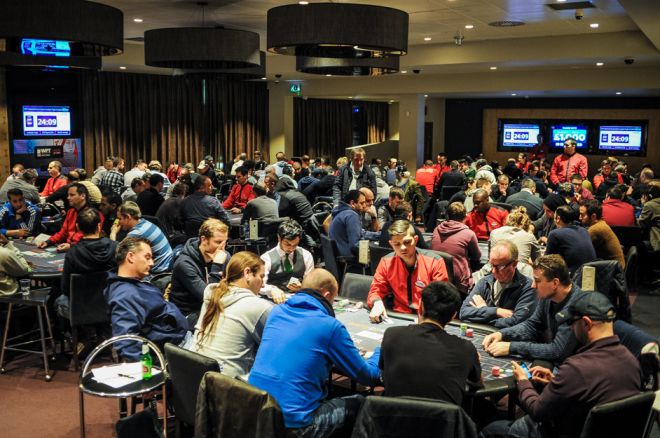
Covering live poker tournaments for a living affords me the opportunity to see countless thousands of hands played out, many of which offer interesting and potentially valuable insights into how players — both amateurs and professionals — play the game. In this ongoing series, I’ll highlight hands I’ve seen at the tournaments I’ve covered and see if we can glean anything useful from them.
This week I’ll continue with another departure from the usual coverage to talk about a hand I recently played.
The Scene
I’m playing in a World Series of Poker Circuit $365 reentry tournament, the second of three starting flights. Most of the players in these tournaments are relatively inexperienced, and my more seasoned opponents can be expected to take an aggressive approach to this format, knowing they have another bullet in Flight 1c should they bust out.
The blinds are 400/800 with a 100 ante, which leaves just two more half-hour levels after this one until the juicy 40-minute levels start. I’ve been at this table for about an hour and have the second-biggest stack, but haven’t been getting dealt much and so haven’t really shown anything down or played many hands. Most of the players at the table seem inexperienced.
The Action
I was second to act with a stack of about 35,000, giving me more than 40 big blinds. I opened to 1,700 with 5x5x and watched as action folded to the player on the button, who was one of the deeper players at the table with around 30,000. He made the call, and both blinds folded, leaving us heads up to a 7x6x2x flop.
I made a continuation bet of 1,600, and my opponent raised to 3,200. I reraised to 8,800, and he didn’t need to think very long about his next move. He told the dealer he was all in and pushed forward his whole stack in awkward fashion.
I asked my opponent if my two eights were any good, and he didn’t respond. After mulling it over briefly, I mucked.
My opponent showed 8x8x and took the pot.
Concept and Analysis
I open a pretty weak hand for an early-position raise, as small pairs play poorly out of position when flatted by opponents at basically all but very deep stack depths. I’m hoping to take down the blinds and antes since my opponents will hopefully respect an early-position raise from a player who hasn’t been active, and I expect I can play my hand well enough after the flop most of the time. I may have been wrong, as this did not prove to be one of those times.
When the dead flop hits, I expect it to miss my opponent most of the time. My read on this player is that he’s possibly the most inexperienced at the table. He doesn’t seem totally at ease handling or stacking chips and hasn’t appeared too adventurous with his preflop hand selection. Most importantly, he three-bet one of my early-position opens a bit earlier, won a pot against a third player in the hand after I folded, and showed down JxJx.
Given the information I have, I’m pretty confident putting my opponent on a weak overpair, probably eights or nines. He’s shown he will three-bet strong pairs preflop and I would expect him to most likely slow play a flop this dead if he has a set. So I decide to come back with a reraise and represent a big pair, hoping he will lay down his middle pair.
That’s where the hand went awry for me. I had made all of the right reads through the whole hand and pretty much had my opponent’s hole cards pegged to a tee. But I neglected to factor in an important detail — many inexperienced players don’t know they’re allowed to fold overpairs. I ended up wasting a big portion of my sizable stack, fizzling out shortly thereafter. This misstep not only cost me this buy-in but the Flight 1c bullet I had to use afterwards.
In retrospect, this was just a foolish bluff. Just because you know your opponent’s hand, that doesn’t give you a license to just represent a better hand and take the pot. Novice players aren’t looking to fold overpairs, and that’s something I failed to consider in my thought process.
Want to stay atop all the latest in the poker world? If so, make sure to get PokerNews updates on your social media outlets. Follow us on Twitter and find us on both Facebook and Google+!

